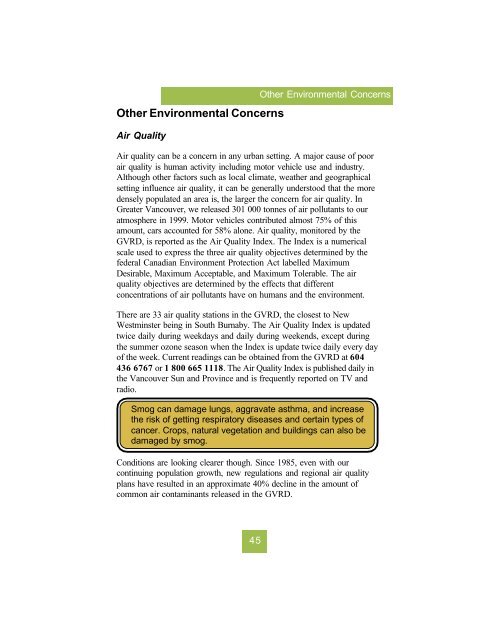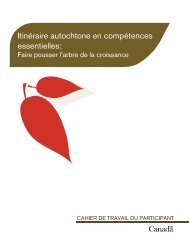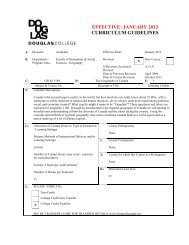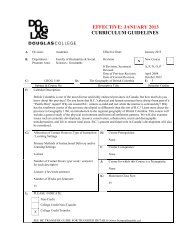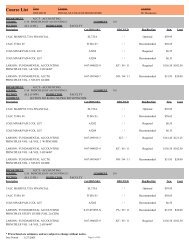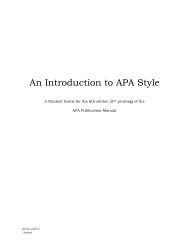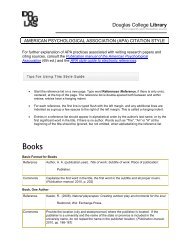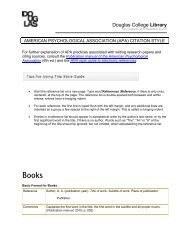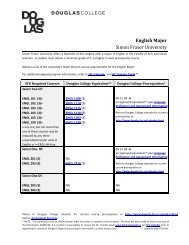New Westminster Environmental Almanac (2917 ... - Douglas College
New Westminster Environmental Almanac (2917 ... - Douglas College
New Westminster Environmental Almanac (2917 ... - Douglas College
Create successful ePaper yourself
Turn your PDF publications into a flip-book with our unique Google optimized e-Paper software.
Other <strong>Environmental</strong> Concerns<br />
Air Quality<br />
Air quality can be a concern in any urban setting. A major cause of poor<br />
air quality is human activity including motor vehicle use and industry.<br />
Although other factors such as local climate, weather and geographical<br />
setting influence air quality, it can be generally understood that the more<br />
densely populated an area is, the larger the concern for air quality. In<br />
Greater Vancouver, we released 301 000 tonnes of air pollutants to our<br />
atmosphere in 1999. Motor vehicles contributed almost 75% of this<br />
amount, cars accounted for 58% alone. Air quality, monitored by the<br />
GVRD, is reported as the Air Quality Index. The Index is a numerical<br />
scale used to express the three air quality objectives determined by the<br />
federal Canadian Environment Protection Act labelled Maximum<br />
Desirable, Maximum Acceptable, and Maximum Tolerable. The air<br />
quality objectives are determined by the effects that different<br />
concentrations of air pollutants have on humans and the environment.<br />
There are 33 air quality stations in the GVRD, the closest to <strong>New</strong><br />
<strong>Westminster</strong> being in South Burnaby. The Air Quality Index is updated<br />
twice daily during weekdays and daily during weekends, except during<br />
the summer ozone season when the Index is update twice daily every day<br />
of the week. Current readings can be obtained from the GVRD at 604<br />
436 6767 or 1 800 665 1118. The Air Quality Index is published daily in<br />
the Vancouver Sun and Province and is frequently reported on TV and<br />
radio.<br />
Smog can damage lungs, aggravate asthma, and increase<br />
the risk of getting respiratory diseases and certain types of<br />
cancer. Crops, natural vegetation and buildings can also be<br />
damaged by smog.<br />
Conditions are looking clearer though. Since 1985, even with our<br />
continuing population growth, new regulations and regional air quality<br />
plans have resulted in an approximate 40% decline in the amount of<br />
common air contaminants released in the GVRD.<br />
45<br />
Other <strong>Environmental</strong> Concerns


